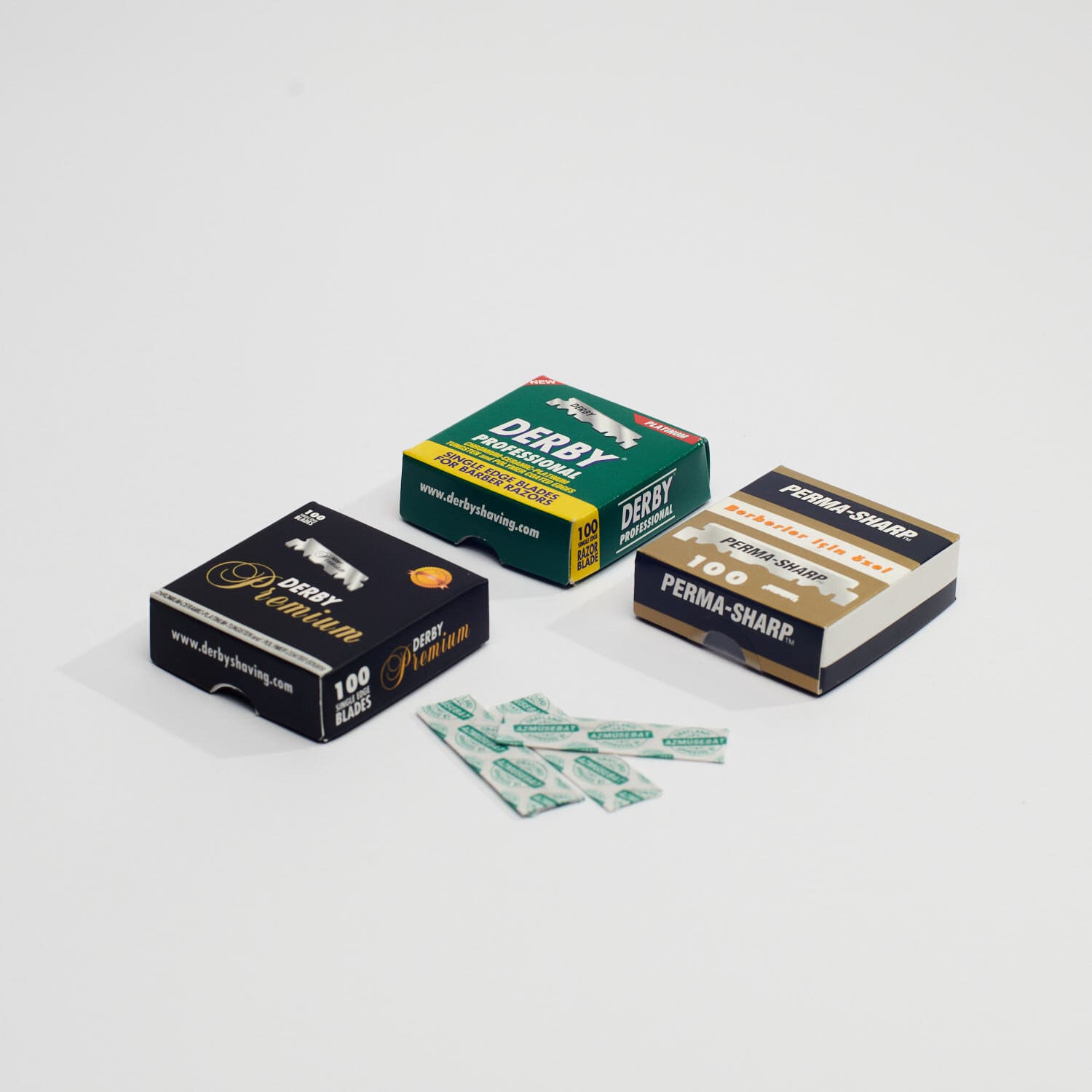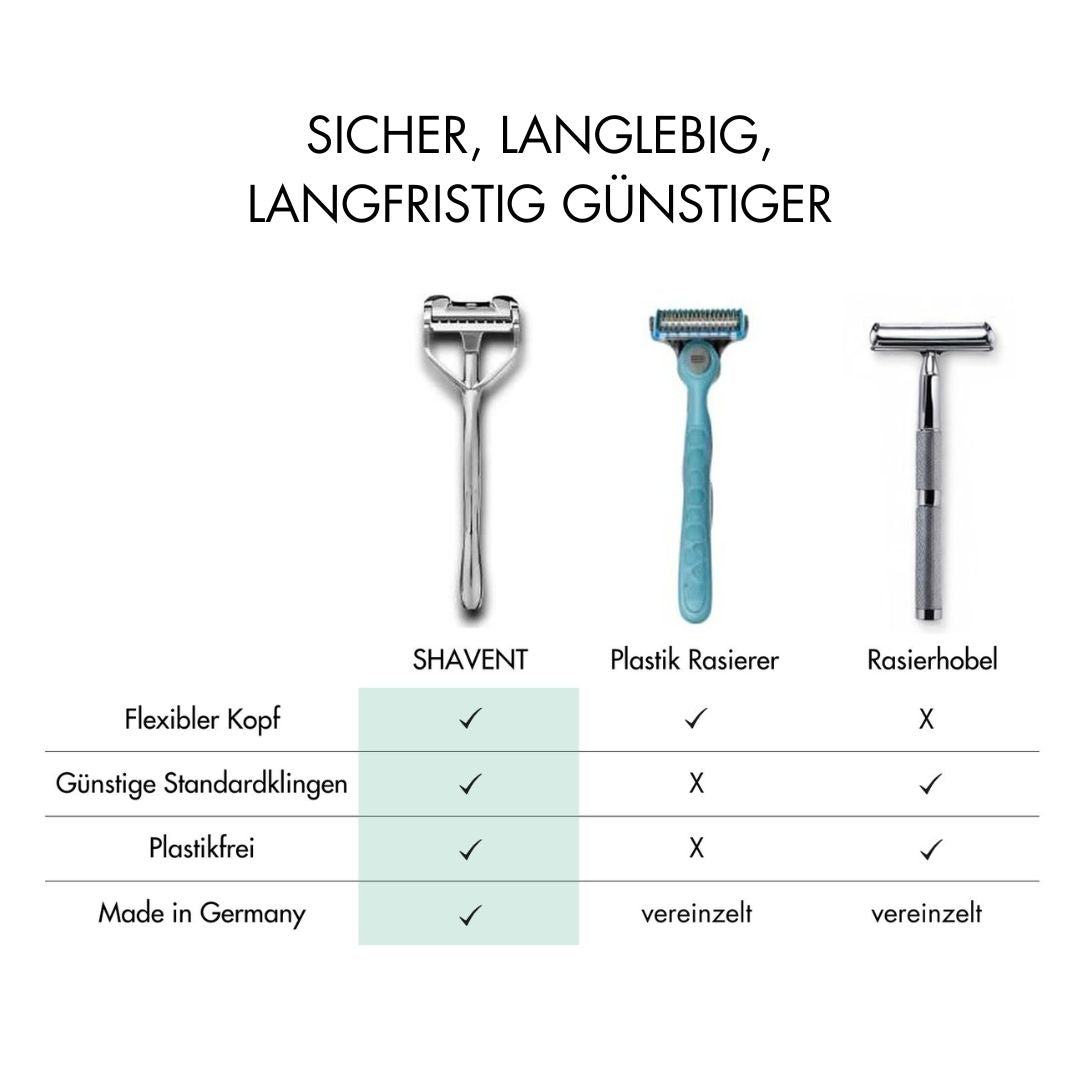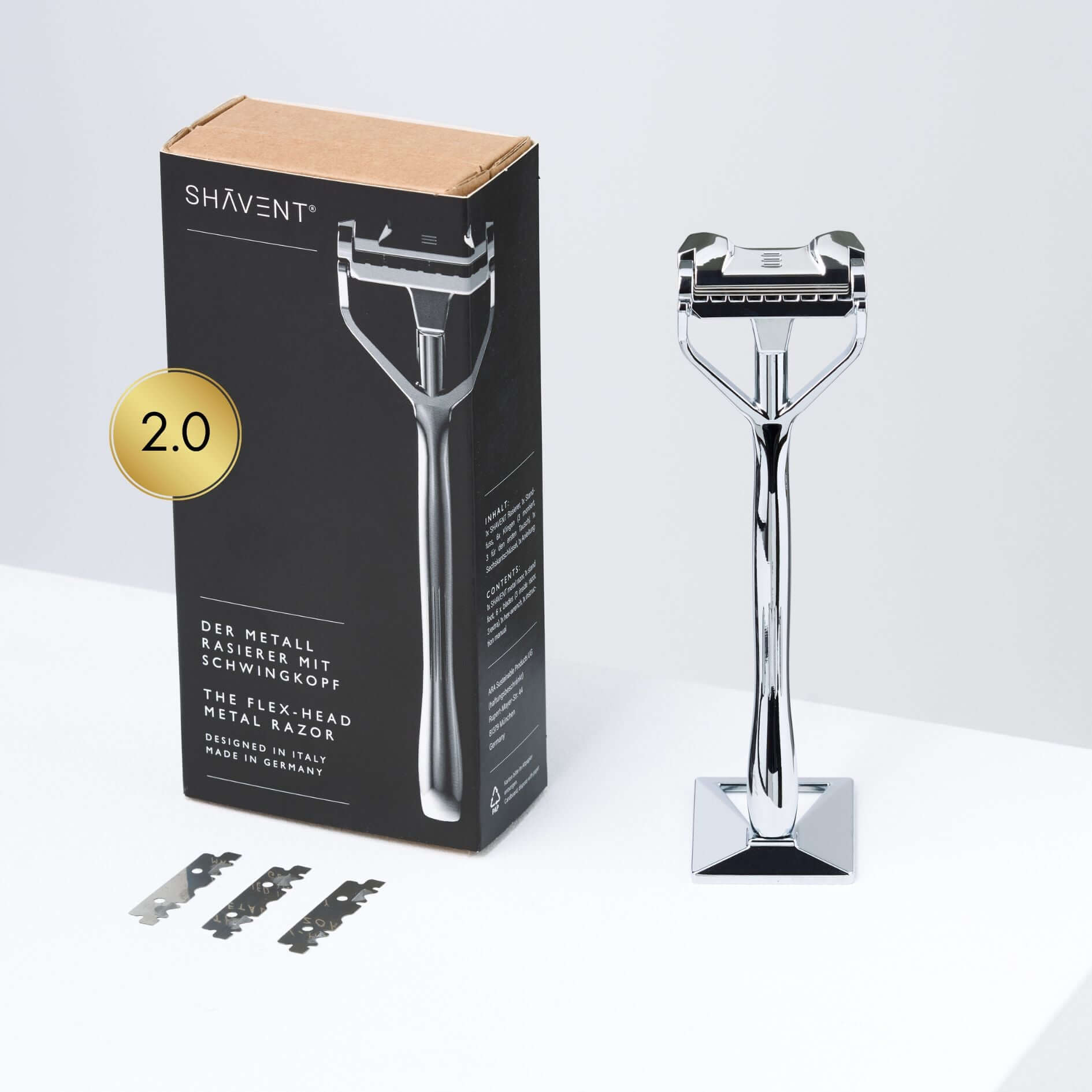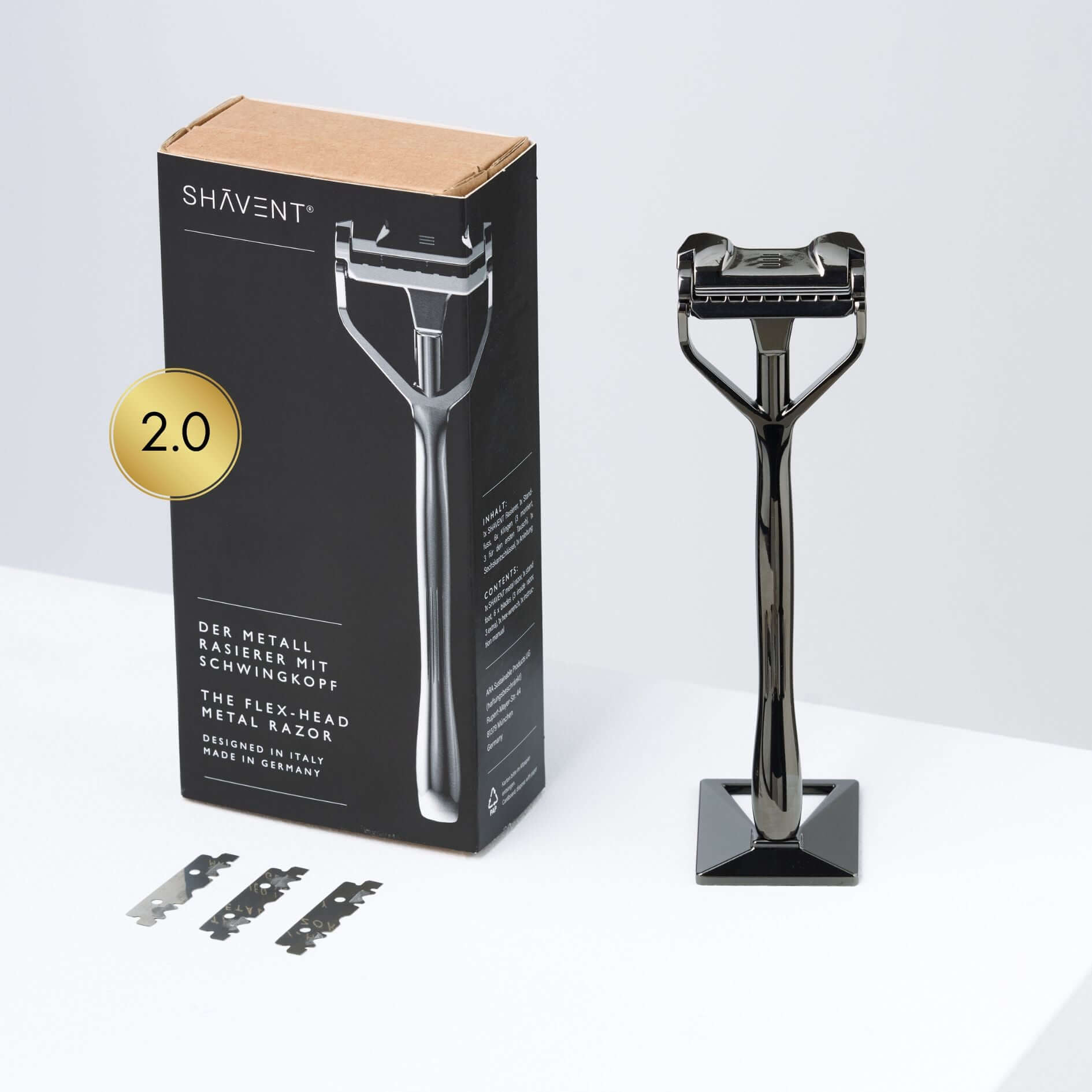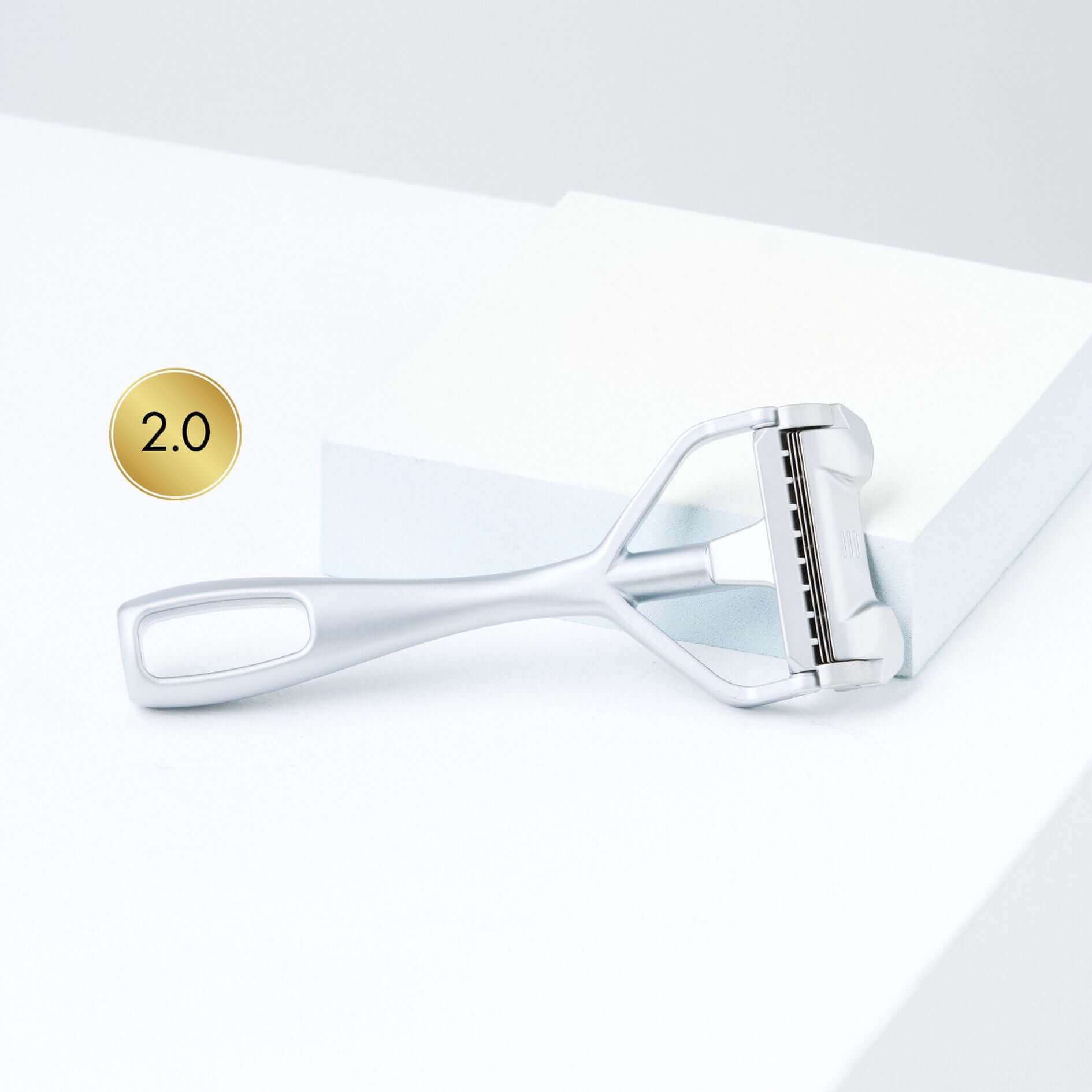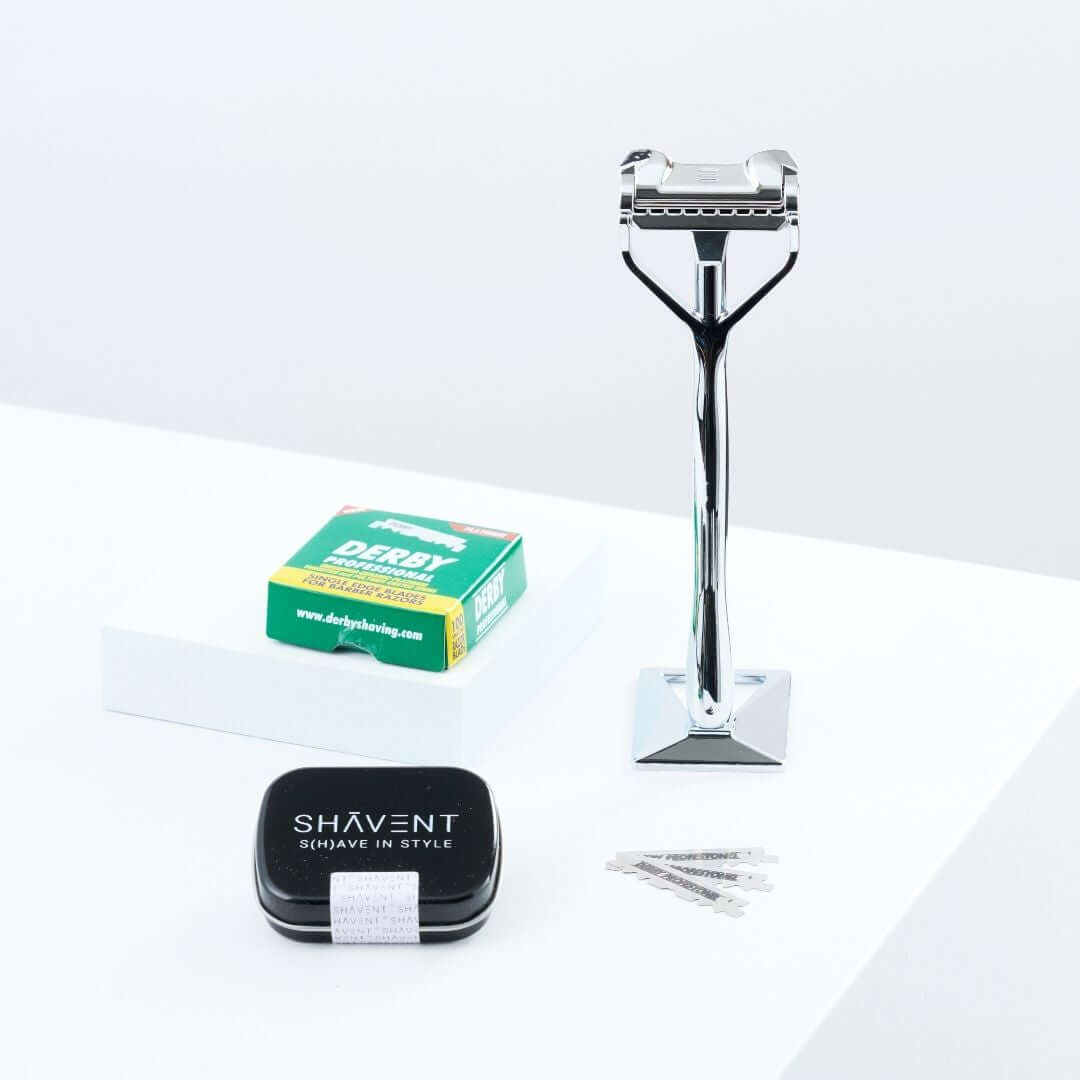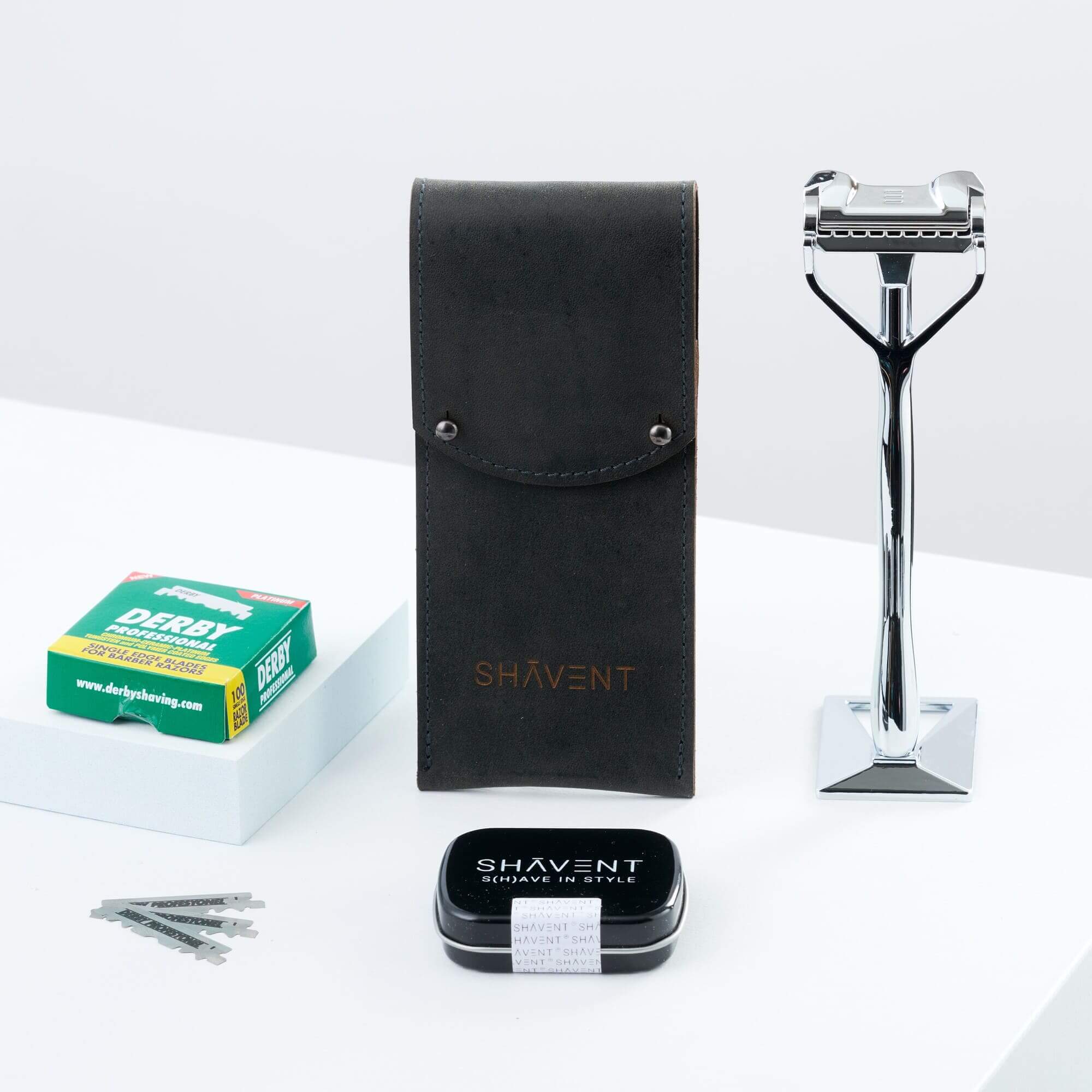The razor blade is a fundamental part of a razor and is largely responsible for the success or failure of a shave. With a suitable razor blade not everything stands and falls, but a lot 😉.
But how long has the razor blade as we know it been around and how is it made?
With this blog article we are making a small detour into the history of the little hero of every shave.
The razor blade in history
The history of the razor blade goes back to ancient Egypt, where they were already known around 3000 BC. used razors. The first blades were made of copper and later bronze. Then, in the 18th century, the first steel blades were manufactured, which were sharper and more durable than their predecessors. The first mass-produced razor blades were made in the late 19th century. An important development in production was the invention of the "steel strip" from which the blades could be stamped. This enabled cost-effective large-scale production.
The manufacture of the razor blade
Most modern razor blades are made from stainless steel, a material that resists rust and corrosion and works well for a sharp, long-lasting edge. The steel is processed into thin sheets in large rolling mills, which are then stamped into shapes to cut out the blades. The blades are then put through various grinding and polishing processes to obtain a sharp and smooth edge. A very important step in the manufacture of razor blades is the heat treatment, in which the blades are heated to a certain temperature and then rapidly cooled. This makes the steel harder and more resistant to breakage and wear. Depending on the manufacturer, the process may vary, resulting in differences in quality, sharpness, durability and flexibility.
Interesting facts about razor blades
- Some razor blades are coated with special coatings like Teflon or diamond powder to improve sharpness and durability. Other blades even have an antimicrobial coating to inhibit bacterial growth.
- There are even collectors who go on the hunt for rare and historic razor blades. Some of the most desirable collectibles are pre-20th century blades or rare blades made only in certain regions.
- Razor blades have also found use in arts and crafts. Some artists use razor blades to create fine lines and details in their work.
- Razor blades play different roles in film and television. They are often used as a tool for personal hygiene and hygiene, but can also serve as a symbol of power, vulnerability or threat.
So we conclude: razor blades have a long and fascinating history that stretches back to the ancient world. Today they are an important part of personal hygiene and beauty care and are used by millions of people worldwide.

